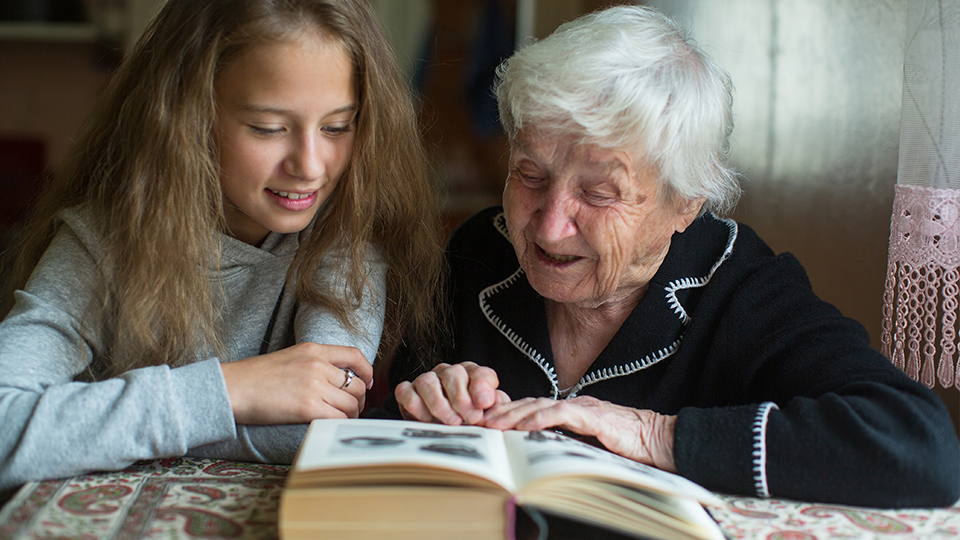We often spare our children the truth about the past, even when they are grown up. Our desire to protect them, and ourselves, from emotional suffering leads our own traumas and those of others before us to remain buried deep inside our family constellation. Unfortunately for us, our genetic memory ensures that traumas we have failed to resolve are passed on to the next generations, not only in the form of inexplicable fears and emotional pain but even as physical ailments. According to Dr Himali McInnes, author of “The Unexpected Patient”, “the thumbprints of our ancestors on our souls” affect our health in myriad ways and “can be more important than the presenting complaint”.
Golden opportunities to ask our parents, grandparents, aunts or uncles deeper questions about their inner world or their past traumas are frequently squandered, whether through fear of prying or simply being more attached to sharing our own stories than listening to theirs. But our personal growth, wellbeing, sometimes even health, rest partly on asking these deep questions and receiving truthful answers in return.
The journey I have taken over the last few years through my family tree has uncovered traumas but has also made me much less judgemental and more forgiving of human weakness. The further back I went, the richer the variety of trauma-inducing behaviours I uncovered; behaviours I had previously judged others for. It was strangely cathartic to find out about the variety of human ‘sins’ that lurked somewhere down the line on both sides of my family tree. Immersed in the grief, fear, regret, and anxiety of my ancestors that suicide, loss of loved ones, abandonment, rejection, greed, and cruelty caused, I was able to trace my own fears back to the traumas of those before and around me.
At the same time, I was elated to relive the bravery of some of my ancestors, whose immense courage culminated in them sacrificing their own lives for the freedom of others. The stories of love and devotion to loved ones, of generosity, forgiveness, and resilience uplifted my soul. In the words of Hazrat Inayat Khan “I realised that I am in everything, and everything is in me.” And this realisation that I carry within me not only the grief and shame, but also the triumph and love of those who went before brought my judgements tumbling down like autumn leaves.
I learnt from genealogist Galya Dimitrova that “Knowing our past carries unique understanding and acceptance... It also helps us to forgive, to move forward and not to pay for the mistakes of previous generations by repeating them.”
Our children’s growth and happiness then, their ability to lead meaningful lives, rest partly on our ability to share our traumas and the lessons we have learned from them. But only if this is approached from a place of love, forgiveness, and acceptance, rather than bitterness, judgement, and victimhood. “Once we’ve neutralized the charge we carry in our body, we can take forgiveness outward.”, advises the renowned inherited family trauma expert Mark Wolynn, author of “It Didn’t Start with You” in an article in Psychology Today. He advocates a daily exercise of developing gratitude for what we have and as a way of counteracting our all-too-human negativity bias. “It's important to celebrate the positive experiences in our life. Feelings and sensations of positive experiences actually change our DNA.”
People frequently say that time is the greatest healer, but my recent realisations lead me to beg to differ. What I have learned is that it is not time that heals the past, but the courage to be open about it, the ability to be vulnerable, to accept the dark storylines within oneself and others, and the ability to forgive mistakes. I have drawn strength from my ancestors’ resilience and courage in surviving tragedies and have seen how life has ultimately improved for every subsequent generation. So, as I struggle with the post-festive blues, it is this awareness that brings me calm and joy. It is the thought of ever expanding and more inclusive perspectives that nurtures my gratitude for the present and my hope for future generations’ fulfilling lives.






